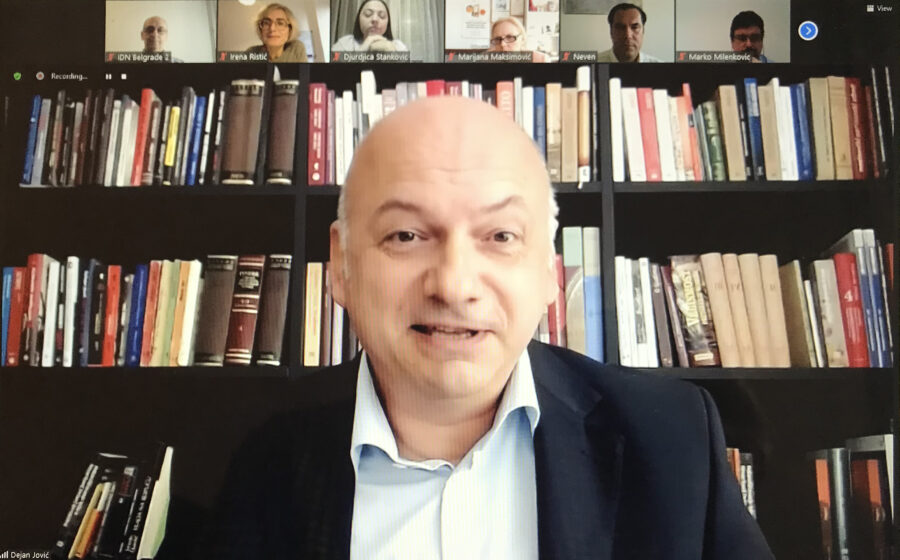Because both the beginning and the end of the socialist Yugoslavia were marked by wars, many are inclined to conclude that the times between the two wars was but an imposed period of peace that was incapable of giving birth to anything worth mentioning. The convincingness and foundation of such a conclusion was analysed by Dejan Jović, professor at the Faculty of Political Sciences in Zagreb, in his lecture titled “Josip Broz Tito and the Governing Left in Yugoslavia (1945-1991): Legacy, Successes and Failures”.
Jović first referred to the conditions in which the post-war Yugoslavia had emerged, as well as the main challenge that the state was facing throughout its existence: that of forgetting not only all the preceding large-scale wars (WWI, Balkan Wars), but also the conflicts among the Yugoslav peoples, as well as civil wars led within each of these peoples. In spite of such a challenge, which in the end proved to be insurmountable, the socialist Yugoslavia had succeeded in consolidating itself as a state and founding within its borders some principles that were progressive for the time, and have indeed remained to be progressive to this very day.
This was the central topic of the lecture in which Jović spoke of the institution of self-management, the idea of brotherhood and unity, as well as of the concept of nonalignment, as of the three major achievements of the socialist Yugoslavia, governing Left and, first and foremost, Josip Broz Tito. The fall of communism in the Soviet Union, and subsequently in the entire East Europe, made these essentially progressive ideas be discredited, and replaced with the dominant perception of Yugoslavia as a historic failure and “the dungeon of the people”. The role of the Left in the post-Yugoslav space, according to Jović, is exactly to criticise and advocate for an alternative to such a perception.
Little has left of the Yugoslav legacy, estimates Jović. Self-management was abolished and replaced with private ownership, and instead of the working class which included an overwhelming majority of the Yugoslav population, the fact that was lending it certain social weight and power, came a number of small nations, exclusive and less comprehensive in nature. Similarly, the idea of brotherhood and unity turned into promoting negative sentiments towards other peoples and deepening of the antagonisms between them. Finally, the idea of nonalignment, granting that it was originally facilitated by the Cold War, is not only unthinkable in today’s post-Yugoslav states, but the importance that the socialist Yugoslavia had in international politics has been entirely unattainable for any of these new states, concluded Jović.
The lecture was held on 12 October 2023, as a part the cycle titled Regional Tea Parties “The Left” organised together with the Academic Network for Cooperation in South East Europe.

